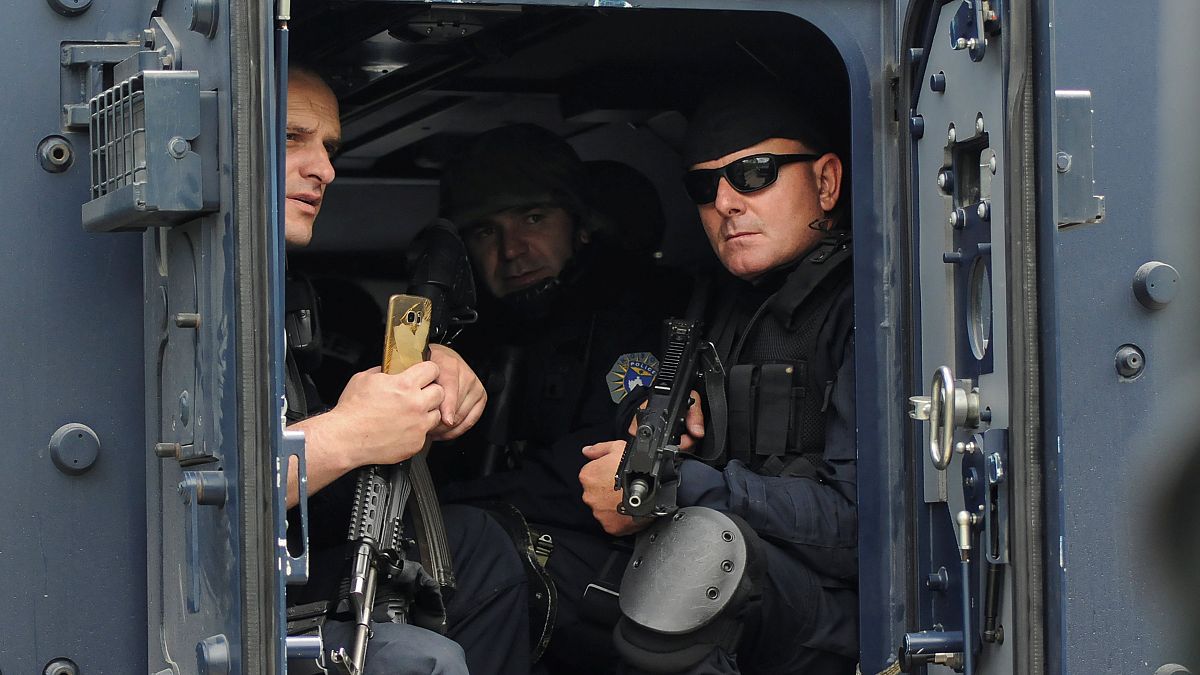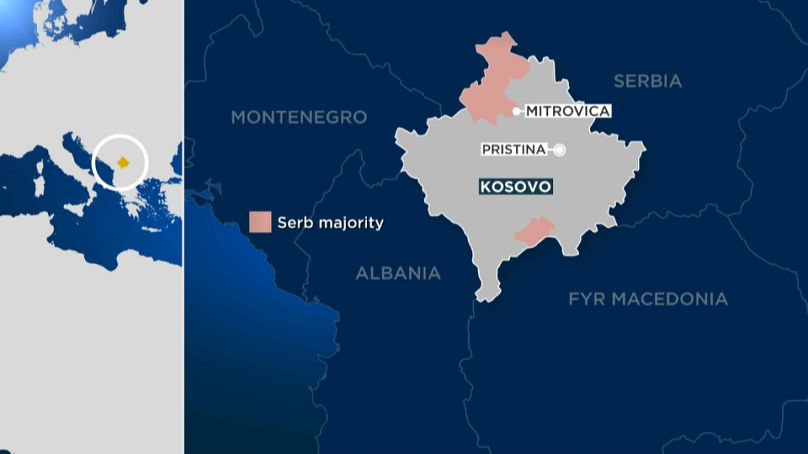Euronews looks back at one of Europe's most violent conflicts and the tense relations between two nations still at odds.
Serbia considers Kosovo part of its territory. Kosovo considers itself an independent state.
It's been 20 years since the former Yugoslav territories were at the centre of one of Europe's most violent conflicts, which killed more than 13,000 people.
Yet the countries are still at odds.
But why are the relations so tumultuous? Euronews explores the history of the Balkan states and how they're still embroiled in a debate over sovereignty.
Early relations
Kosovo is a small, landlocked nation slightly larger than Cyprus that has a population of about two million people. The majority of Kosovo's population is ethnically Albanian and Muslim.
That's because Serbia first lost the Kosovo region to the Ottoman Turks back in the Middle Ages and only regained the territory in the early 20th century.
The small population of ethnic Serbs live in the north of the territory close to the border between the region and the rest of Serbia.
In the aftermath of World War II, Kosovo largely enjoyed autonomy as a region within Serbia.
Violent confrontation
That changed drastically in 1989 when Serbian leader Slobodan Milošević brought Kosovo directly under the Serbian government in Belgrade and the dissolution of Yugoslavia brought war to the area.
Following in the footsteps of Slovenia and Croatia, Kosovo declared independence from the Socialist Yugoslav Federation but did not get very far. Few countries recognised the state and, meanwhile, violence had broken out in Bosnia where Muslims were driven out of their homes in what became known as "ethnic cleansing".
By 1996, a paramilitary group had formed. The Kosovo Liberation Army (KLA) began armed conflict in a campaign against Milošević.
Serbian special police killed over 50 members of a KLA leader's family in early 1998 and violence only escalated as Serbian police executed ethnic Albanians in a supposed war on terrorism. The KLA responded with its own campaign of violence.
"We are not going to stand by and watch the Serbian authorities do in Kosovo what they can no longer get away with doing in Bosnia," US Secretary of State Madeleine Albright reportedly said.
The international community condemned the violence.
The UN banned arms sales to Serbia and demanded a ceasefire in 1998 as NATO began planning an intervention. Then a turning point: Serbian special police killed 45 ethnic Albanians in the so-called "Račak Massacre" in 1999.
NATO then launched a 77-day air campaign against Serbia in which some civilians were killed. By the time the Serbians left Kosovo and the KLA demilitarised, over a million people had been displaced and began returning to the country.
Independence campaign
Kosovo became a self-governed territory under the United Nations, which was tasked with determining Kosovo's future status.
Talks began in 2006 to determine this status, as the UN hosted 17 rounds of negotiations between Kosovo and Serbia, but the plan for Kosovar independence negotiated by the former Finish President Martti Ahtisaari was rejected by Serbia.
Kosovo declared independence in 2008 but is still not recognised by Serbia as an independent state, though more than 100 countries do.
The EU has led talks between the two countries since 2011 which resulted in several technical agreements including the Brussels agreement which aimed to normalise relations and integrate the Serb minority in northern Kosovo.
But in practice, the agreements were vague, and the process was undone after several setbacks.
Ongoing tensions
One setback was the murder in January 2018 of Oliver Ivanović, an ethnic-Serb politician in northern Kosovo. After he was gunned down, talks on normalising relations were further postponed. Serbia's President Aleksandar Vucic called the killing "an act of terrorism".
At the end of that year, Kosovo raised customs duties on imports from Serbia to 100% after Belgrade blocked Kosovo's bid to join Interpol. In addition to this, Kosovo decided to upgrade its security force into an army, which Serbia sees as a potential threat that could trigger a military response from Belgrade.
But on April 29th, Kosovar and Serbian presidents, Hashim Thaçi and Aleksandar Vučić, will sit at the negotiating table in a meeting organised by France and Germany since talks were suspended in 2015 to try and find concrete solutions to their impasse.
In an interview with Euronews, the British ambassador to Kosovo, Ruairi O'Connell, said there was momentum on both sides to make a deal about the border but that it would take time.
"We don’t need a quick deal, we need the right deal and that needs both sides to come prepared and to talk to their people and get ready to sit down at the table seriously," he said.
However, the talks led to nowhere since Kosovo refused to levy the tariffs.

